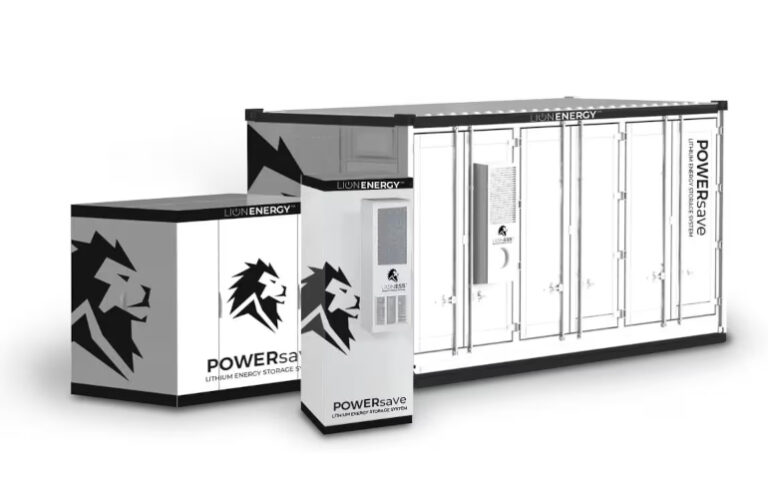Leo Energy is developing a production line for battery rack modules (BRM) and the assembly of large energy storage cabinets at its facility in Utah. The manual line will be used as a proof of concept for a large-scale production line expected to produce 2 GWh of energy storage monthly by 2026 to meet growing demand.
Manual, pilot and production lines will be developed over time, with the first built at Lion Energy’s Utah headquarters and then additional lines created at the American Battery Factory (ABF) facility in Tucson, Arizona. The Utah-based line will allow Lion Energy to produce BRM, a 50-V lithium iron phosphate (LFP) battery pack that will be sold by the company. Once the infrastructure is in place, the company expects to produce over 18,000 BRM units by 2026.
“Our U.S.-based manufacturing lines will strengthen both the national and Utah-based economies and create good-paying jobs while producing high-quality products right here in the United States,” said Tyler Hortin, president and CEO of Lion Energy. “This is an important step toward manufacturing all of our products in the U.S., which is one of our top priorities, while increasing our nation’s security. Our partnerships with Lyric and ABF give us access to the battery cells and equipment needed to be successful in the seamless production of our energy storage systems as we strive to make energy independence a reality for all.”
The manual line will first be built at Lion Energy’s headquarters in American Fork, Utah, and will span approximately 1,300 feet.2 and produce approximately 200 BRM units per year. This line will be mainly used for verification of the integration of the design and its finishing, as well as for the validation of the main assembly line machines. In the long term, this line will be converted into a BRM service line.
With this line, Lion Energy mainly aims to validate the BRM assembly design, including key components such as the housing, fan, lift points and the Lion Energy battery management system. Moreover, the company is trying to verify the manufacturability of the units and the sub-modules within them. Throughout the process, the company will determine what level of automation is possible in the design, what additional sensing is needed, what ergonomics are needed, and what operator training is needed. At the end of manual line operation, the company will assess the transition to a maintenance line, including cell testing and cleaning, end-of-life testing and laser welding.
Lion Energy’s BRM units consist of 16 cells arranged in sub-modules that are electrically connected to create the nominal 50-V package and are installed in the company’s residential and commercial energy storage systems, such as the Lion Sanctuary and Lion POWERsave . Lyric will supply the equipment required for the assembly and production of these systems, while ABF will supply the battery cells used in the sub-modules. By implementing advanced testing processes as part of this production line, Lion Energy will improve the reliability and efficiency of these units.
By implementing automation and modernized production methods, the company expects a significant reduction in labor hours compared to manual methods. Furthermore, higher labor costs will be offset by this automation and the efficiency gains will lead to cost savings compared to a comparable manual assembly line, delivering competitive prices. The line will enable the company to maximize internal product development and reduce dependence on foreign suppliers. In the future, this improved production efficiency will not only enable Lion Energy to better serve its customers, but also revitalize domestic production.
“Lion Energy understands the urgent need for the United States to be competitive and independent in the energy sector,” said John Kem, president of American Battery Factory. “This line makes it possible to produce at a reasonable price, be an environmental steward and provide quality jobs to our region. We look forward to supporting this project with our battery cells and the use of our facilities as we get closer to the production line.”
News item from Lion Energy


